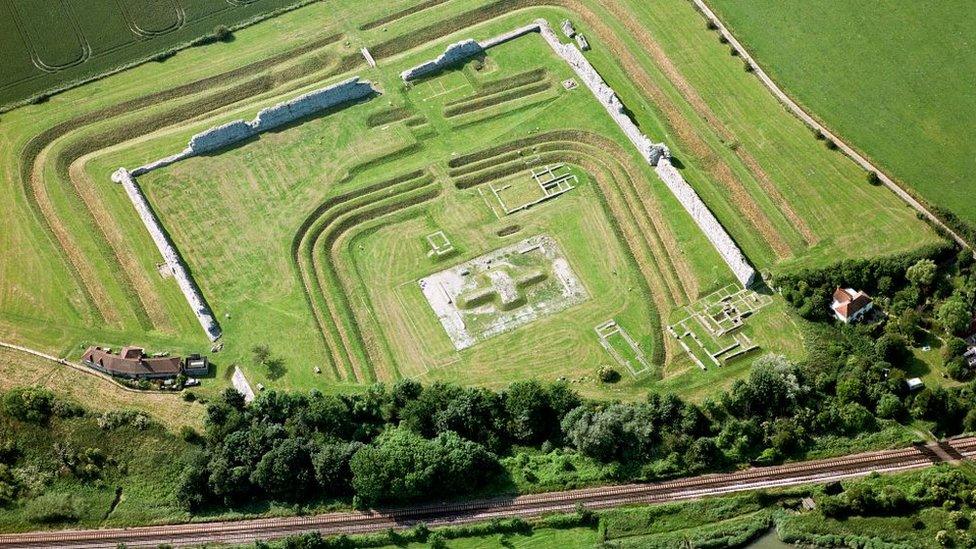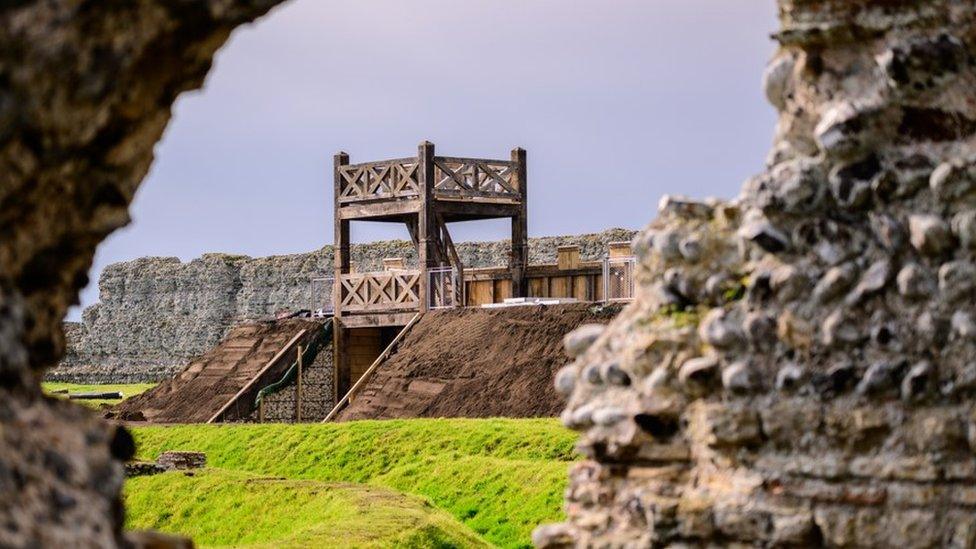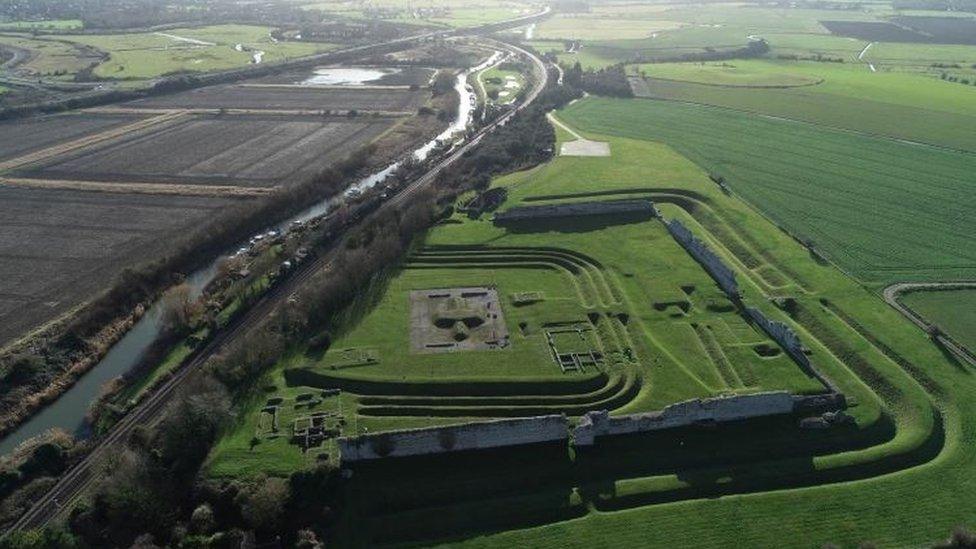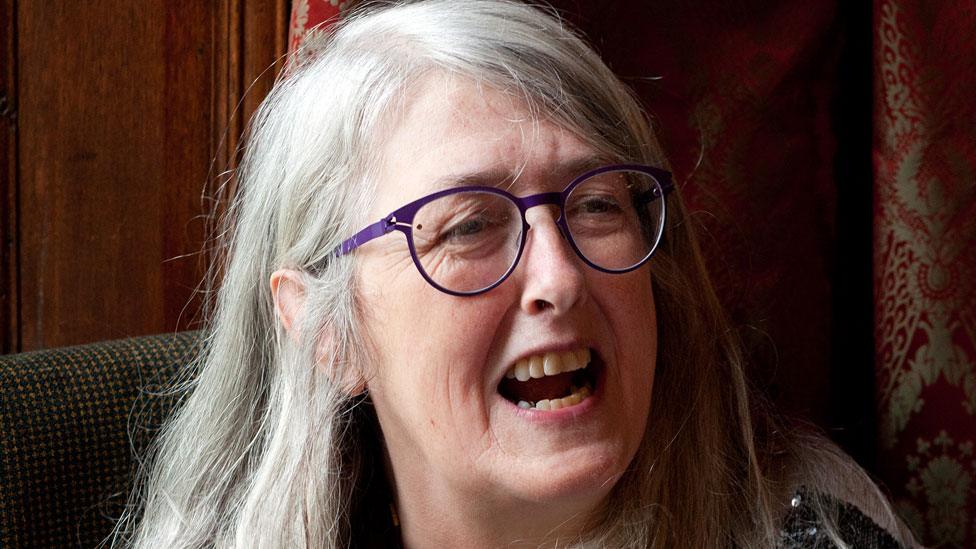Campaign to protect Roman site gets boost from TV's Mary Beard
- Published

Plans for a solar farm on land close to a Roman fort near Sandwich are being considered by Dover District Council
Historian Mary Beard has boosted a campaign in Kent to protect one of England's most important Roman sites.
Residents are battling plans for a solar farm on 84 hectares (208 acres) of farm land between Ash and Sandwich.
Its developer, Statkraft, has said the farm would contribute to local and national net zero targets.
But in a post on X, Dame Mary, external said: "If you are interested in the Roman site at Richborough, you should take a look at this."
She then shared a link to the planning application.
Her post resulted in dozens more objections being lodged with Dover District Council (DDC) against the application.
Norway-based Statkraft, a renewable energy company, wants to place the development less than 200 metres from the historic Roman site.
The firm said its development would provide enough clean electricity to meet the annual electricity demand of almost 16,000 dwellings.
'Further evaluation'
Richborough once hosted a huge Roman fort, town and amphitheatre, and was the first permanent Roman settlement in Britain after the invasion by Emperor Claudius in 43 AD.
The wall of the fortress and the remains of earthworks and the amphitheatre remain visible.
Tony Redding, a military historian who lives in Ash, described the fort as "probably the most important single Roman site in Britain".
"There's a very strong possibility that the first Roman road to be built in Britain runs exactly across the middle of the proposed site," he told the Local Democracy Reporting Service.
Planning documents lodged by Statkraft said "there is no evidence to support the presence of the Roman Road".
Kent County Council archaeology officer Ben Found said: "Further intrusive evaluation works are required before the application is determined."
The application will be considered by DDC's planning committee by the end of March.
The council aims to become a net zero carbon emitter by 2030 and for the district to be carbon neutral by 2050.

Follow BBC South East on Facebook, external, on X, external, and on Instagram, external. Send your story ideas to southeasttoday@bbc.co.uk, external
Related topics
- Published18 April 2023

- Published9 March 2020

- Published20 June 2018
